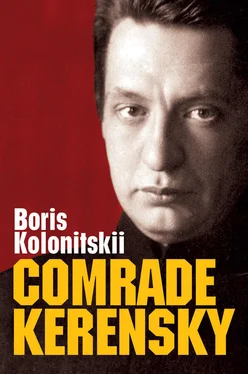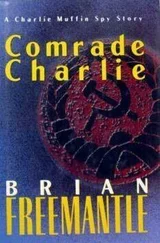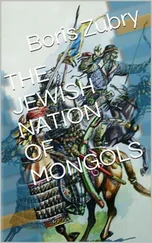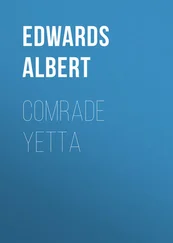Returning to the matter of how well informed Kerensky was, we should mention that he also knew of plans for a coup d’état which were being made in political and military circles. He later recalled: ‘We too, the leaders of the Masonic organization, knew of the conspiracy and, although unaware of all the details, also prepared for the decisive moment.’ Kerensky was himself present at some of the conspirators’ meetings. On one occasion he had a visit from officers intent on arresting the tsar who wanted to enlist his support. 135The fact that various groups involved in complicated political intrigues wanted to involve Kerensky is testimony to his reputation and influence. Later Kerensky himself admitted he had been hoping for a coup as early as 1915. 136These episodes, however, did not feature prominently in efforts to boost his reputation in 1917.
We find Kerensky under consideration for possible inclusion in a new government in the event of a change of regime. 137Rumours to that effect circulated widely, and it is noteworthy that even Lenin in Switzerland was writing in early 1917 about the possibility of a government being established in Russia by Milyukov and Guchkov or by Milyukov and Kerensky. 138Kerensky’s growing authority was even more evident to the political elite of Petrograd.
By the beginning of 1917 Kerensky was in a unique situation. His social position, his personal qualities and the resources he had at his disposal made him welcome in highly diverse political circles whose representatives rarely had any contact with each other. Kerensky was both a parliamentarian and a lawyer; he associated with Freemasons and the political underground. His status as a member of the Duma, his parliamentary immunity, his knowledgeability and his fame enabled him to render effective assistance, without undue personal risk, to those in the underground. His position as someone with access to the world of the illegals made him interesting and respected by politicians who confined themselves to legal activities. In different ways and for different groups he was the mouthpiece of public opinion, a source of influence, a moral authority and a well-informed expert. The peculiarities of the political system which had developed in 1905–7 and during the war made it possible for Kerensky to act in such diverse roles at the same time, but only someone endowed with exceptional personal and professional qualities could have taken advantage of these opportunities.
Kerensky was at the centre of diverse political coalitions which united some who supported preservation of the empire and federalists; opponents of the war and defencists; and various kinds of monarchists and republicans of many hues. It is tempting to explain this as having been achieved through Masonic connections, but it needs to be said that such an ‘explanation’ is no more than an intellectual skeleton key. Conspiracy theories can be used to explain any social occurrence, but their cognitive value is minimal. It is more useful to observe here that Kerensky was greatly assisted simply by his non-partisan, non-factional status. He was not signed up to any party programme, and his non-partisanship was most dramatically evident in his attitude to the war. At different times and in different companies he expressed different views, and this cannot always be explained away as political mimicry. As a politician, he was striving – sometimes perhaps instinctively – to create a broad, flexible ideological framework conducive to achieving his unwavering goal of a revolution during the war. For some of Kerensky’s negotiating partners this was revolution in order to continue successful prosecution of the war; for others it was in order to bring the war to an end. It was not only Kerensky who engaged in forming such associations, but his role was highly noticeable. This practice at creating coalitions out of such ill-assorted constituents was of great value to Kerensky during the revolution in his negotiations with representatives of very diverse elites.
Kerensky’s experience as a defence barrister in political trials and as a radical deputy in the State Duma was important for creating his public persona and for consolidating his authority as a tribune of the people and fighter for workers’ rights, as well as for his position as a champion of the law, a defender of national minorities, and a representative of the radical intelligentsia in the realm of big politics. All these facets of Kerensky’s image came into play at the time of the February Revolution.
4 ‘Hero of the revolution’
In the first issues of the Petrograd newspapers produced after the overthrow of the monarchy, a greeting to Kerensky was published from the Socialist Revolutionaries: ‘The Conference of Petrograd Socialist Revolutionaries sends greetings to you, Alexander Fyodorovich, as a steadfast, tireless fighter for a government of the people, a Leader of the revolutionary people who has joined the Provisional Government to defend the rights and freedom of the toiling masses.’ 139
The authors of the address approved of Kerensky’s becoming a member of the government and, unlike most of the leaders of the Petrograd Soviet, gave him a mandate to join it. Such trust stemmed from his personal prestige based on his reputation as a steadfast and tireless fighter, and he was singled out from other fighters as a ‘Leader of the revolutionary people’. The awarding of such a title was a considerable rarity at that time and resulted from the great appreciation of Kerensky’s role in the February Revolution. The first legally convened forum of a party which was to play a major role in subsequent events proclaimed him a revolutionary Leader, substantially enhancing his status in the eyes of all the Socialist Revolutionaries’ supporters.
The speeches Kerensky delivered on the eve of the revolution were of great importance for his image as a steadfast fighter and leader, and were much quoted. In retrospect the speeches were perceived as bold and accurate prophecies. Journalists favourably inclined towards him wrote of the Leader’s inspired and accurate predictions and of the sense of the impending revolutionary storm which his speeches had conveyed.
Different writers used similar words. 140The gift of ‘foresight’, even of ‘clairvoyance’, which journalists attributed to Kerensky marked him out as a unique Leader. One speech, banned by the tsarist censorship, was published during the revolution under the title ‘The prophetic words of A. F. Kerensky, pronounced on 19 July 1915 in the State Duma’. 141The foreword to another edition of his speeches declared: ‘We can see that his last speeches in the Duma were prophetic, and that the first socialist minister of free Russia showed himself to be one of our most far-sighted statesmen.’ His prophetic speeches were evidence that the minister was endowed with the ‘ardent heart of a revolutionary patriot and the sage foresight of a statesman’ – small wonder that Kerensky’s political allies published them after the February Revolution. His allies drew the attention of readers to the exclamations and remarks of the Duma’s chairman, Mikhail Rodzyanko, and of other liberal deputies who formed the Provisional Government, in which these moderate politicians interrupted the speeches of the ‘revolutionary deputy’ as he foretold the destruction of tsarism. 142Readers were given to understand that, in the Duma, Kerensky alone had possessed the gift of political foresight and the fortitude of a revolutionary. Accordingly, his was a special place in the government.
The selection of texts for publication is also instructive, with Kerensky’s speeches of late 1916 and early 1917 much republished and talked about. The opposition’s attack on the regime had intensified in the autumn. On 1 November a famous speech by the leader of the Constitutional Democrats, Milyukov, with its refrain of ‘stupidity or treason?’, had resounded in the State Duma. This sensational speech eclipsed an even more radical speech by Kerensky, who that same day attacked the government so vehemently that the chairman deprived him of the floor. Not, however, before he had managed to brand the tsar’s ministers ‘traitors to the country’s interests’ and effectively called for overthrow of the government.
Читать дальше









